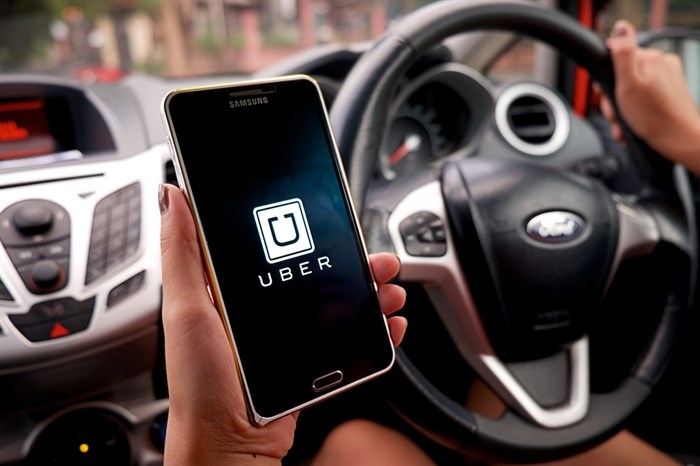Uber hits back against decision requiring it to offer wheelchair accessible options
Uber Canada, facing multiple legal threats from around the province, is fighting back in the courts.
The ride-hailing company has filed two lawsuits this week, one against the City of Vancouver and the other seeking judicial review of a B.C. Human Rights Tribunal.
Uber lost a case before the tribunal last March and was ordered to pay $35,000 to Martin Bauer because it does not have vehicles in its fleet to accommodate Bauer and his wheelchair, a breach of the B.C. Human Rights code. It was also ordered to start offering wheelchair accessible vehicles in its fleet within a year.
In its petition for judicial review of that decision, Uber says the province’s Transportation Safety Board regulations that allow it to operate in the first place, already decided that companies like theirs don’t have to operate wheelchair accessible vehicles. Instead, it says it has paid “tens of millions of dollars” to a fund that ultimately went to its competitors — taxi companies — to bolster their wheelchair capable fleets.
READ MORE: Enderby's Starlight Drive-In opens this weekend with a blockbuster
"Time and again the province told the world that was what the fee was for. Uber paid the fee. The province spent at least some of the money as it said it would. The regulatory regime worked as everyone intended," its petition says. "Until now. The Tribunal decided that the province’s regulatory solution was pointless because the Code requires Uber to provide wheelchair accessible services anyway."
It was the same argument Uber used in the tribunal last year but was ultimately undermined by submissions from the Attorney General of B.C. which told the tribunal the per-trip fee was designed to incentivize Uber and others to provide the specialized vehicles. That appears to have caught Uber by surprise, since it listed ten instances where other government agencies said the exact opposite.
“The (attorney-general) provided no evidence for that position—the (attorney-general) produced no evidence and called no witnesses,” Uber said in its petition, filed April 29. “Nor did the (attorney-general) attempt to explain how that position could be reconciled with the many statements by provincial officials confirming that the per-trip fee was in lieu of requiring (ride-hailing companies) to provide wheelchair accessible services.”
Uber has greater incentive to fight the case because it’s also defending a class action suit by wheelchair users.
Lawyers for the company argue the Tribunal’s decision makes no sense. How would charging fees to ride-hailing companies incentivize its drivers to load up on wheelchair accessible vehicles, it asks.
The company has also filed a petition for judicial review of City of Vancouver bylaws that restrict Uber and similar companies from operating in the downtown core from 7 a.m. to 10 p.m. and also charges its own per-trip fee that begins or ends there. It argues Vancouver has no jurisdiction for its regulations and the fees equate to a toll to use Vancouver streets. It argues only the Passenger Transportation Act has the power to impose those regulations.
Neither Vancouver nor the province have responded to the lawsuits.
To contact a reporter for this story, email Marshall Jones or call 250-718-2724 or email the editor. You can also submit photos, videos or news tips to the newsroom and be entered to win a monthly prize draw.
We welcome your comments and opinions on our stories but play nice. We won't censor or delete comments unless they contain off-topic statements or links, unnecessary vulgarity, false facts, spam or obviously fake profiles. If you have any concerns about what you see in comments, email the editor in the link above. SUBSCRIBE to our awesome newsletter here.






